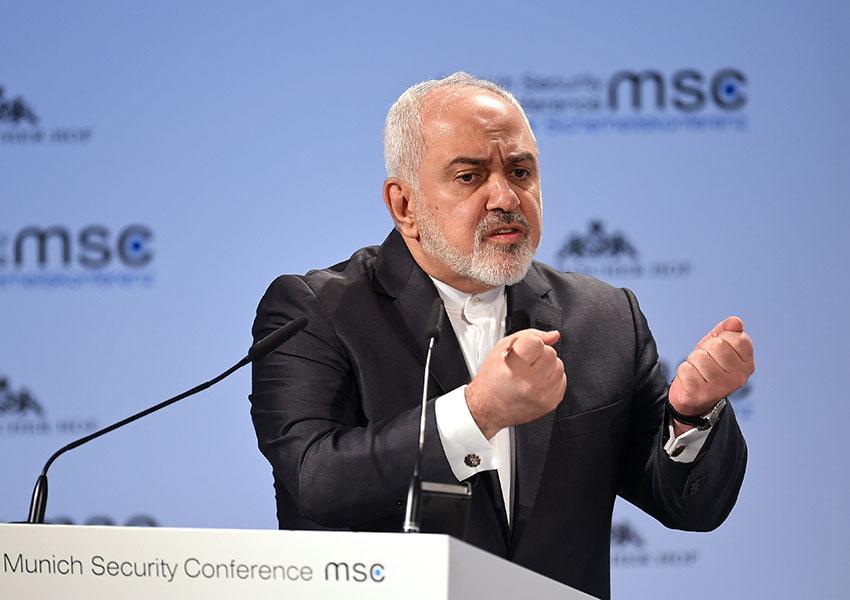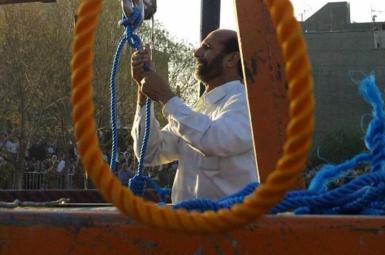
Fact-Checking Zarif’s Claims in Munich: Security-Driven Human Rights
Javad Zarif, Iran’s foreign minister, told the Munich security conference that Human Rights for us [Iran] is a security requirement – not a moral nicety.
But, is Zarif’s claim factual? To fact-check his claim, we will need to take a look at Iran’s record in human rights. The non-governmental and independent organizations which monitor human rights are the best indicators for evaluating a country’s commitment to the principles of human rights. These organizations usually have no political ties with governments and influential groups and record the cases of human rights abuses around the world. They also publish comprehensive reports on the status of human rights in each country.
Human Rights Watch is one of the most credible ones. Among all its reports, those dedicated to Iran are worth reading. They show, despite Zarif’s claims, that human rights have never been a concern for the Islamic Republic of Iran.
In the latest report, the HRW highlighted these cases among many others:
1. The first case of violation of human rights raised in this report is related to the mass demonstrations in December 2017 where at least 30 people were killed. There has been no investigation about how these people were killed and the security forces have not been questioned about their brutal use of violence against protesters.
2. According to Alireza Rahimi, a member of parliament, 4900 people were arrested during the protests in December 2017, among which 150 were students. Human Rights Watch criticizes the Iranian regime for violation of people’s rights to protest and unjustified mass detainment of protesters.
3. Another section of the report describes the crackdown on Gonabadi dervishes and the detainment of 208 members of them. The report specifically mentions Mohammad Raji who was mysteriously killed in prison.
4. More than 50 people were arrested in peaceful demonstrations around the country is another example of the abuse of human rights in Iran.
5. Telegram with 40 million users in Iran was blocked by the regime. It is a clear example of a violation of Iranians’ right to free access the internet.
6. Many lawyers have been arrested arbitrarily including Nasrin Sotoudeh, Mohammad Najafi, Ghasem Sholeh-Saadi.
7. Some political prisoners have been deprived of health services and treatments, such as Arash Sadeghi. In addition, 17 protestors to compulsory hijab were sentenced to prison.
The above-mentioned examples show just a fraction of cases of abuse of human rights in Iran. It is not possible to cover all the examples in the report by HRW here.
Now Javad Zarif claims that human rights is a concern to him and says human rights are respected in Iran. Earlier, Iran’s supreme leader, on the same topic, said: “Armed forces in Paris attacked protestors and blinded their own people. But they arrogantly question Iran. We should ask them if they know human rights at all?” A slight examination of these comments by Iranian officials will reveal their approach toward human rights in general. When he attacks France on such grounds, the supreme leader shows he does not care about human rights, but it is a means for his rhetoric. His concern is that in their crusade with the West, the Islamic Republic must not fail.
Zarif’s comments were of the same nature. He says that Europe is not in the position to lecture us about human rights. This politics-driven approach to human rights is shared among other Iranian officials, including the supreme leader.
They have never been responsive to the domestic media in Iran about human rights. When they are questioned by the international media, they play politics and they are quick to turn the table on the questioner for the human rights abuses elsewhere.
Zarif also told his audience at the Munich conference that “human rights for us is a security requirement, not a moral nicety”. The question here is if he means protecting the regime is the security issue at stake? When they arrest Esmail Bakhshi’s mother who went to prison to inquire about her son’s wellbeing, does it pose a security threat against the regime? Why isn’t Zarif concerned about Arash Sadeghi who has been deprived of medical treatment in prison?
It was recently reported that the appointed lawyer for the detained environmentalists said that he had not been able to meet his clients in person even after four sessions of their court. Is this not a violation of the detainees’ rights?
Zarif is right. They treat human rights as a security issue. If one looks at how they deal with environmental activists, workers, women, it is clear that they are detained based on national security charges. While their activism was in line with principles of human rights, the Islamic Republic prosecutes them with national security charges.
What Zarif said in Munich was true. He unwittingly revealed that human rights are serious national security crimes in the Islamic Republic of Iran.









